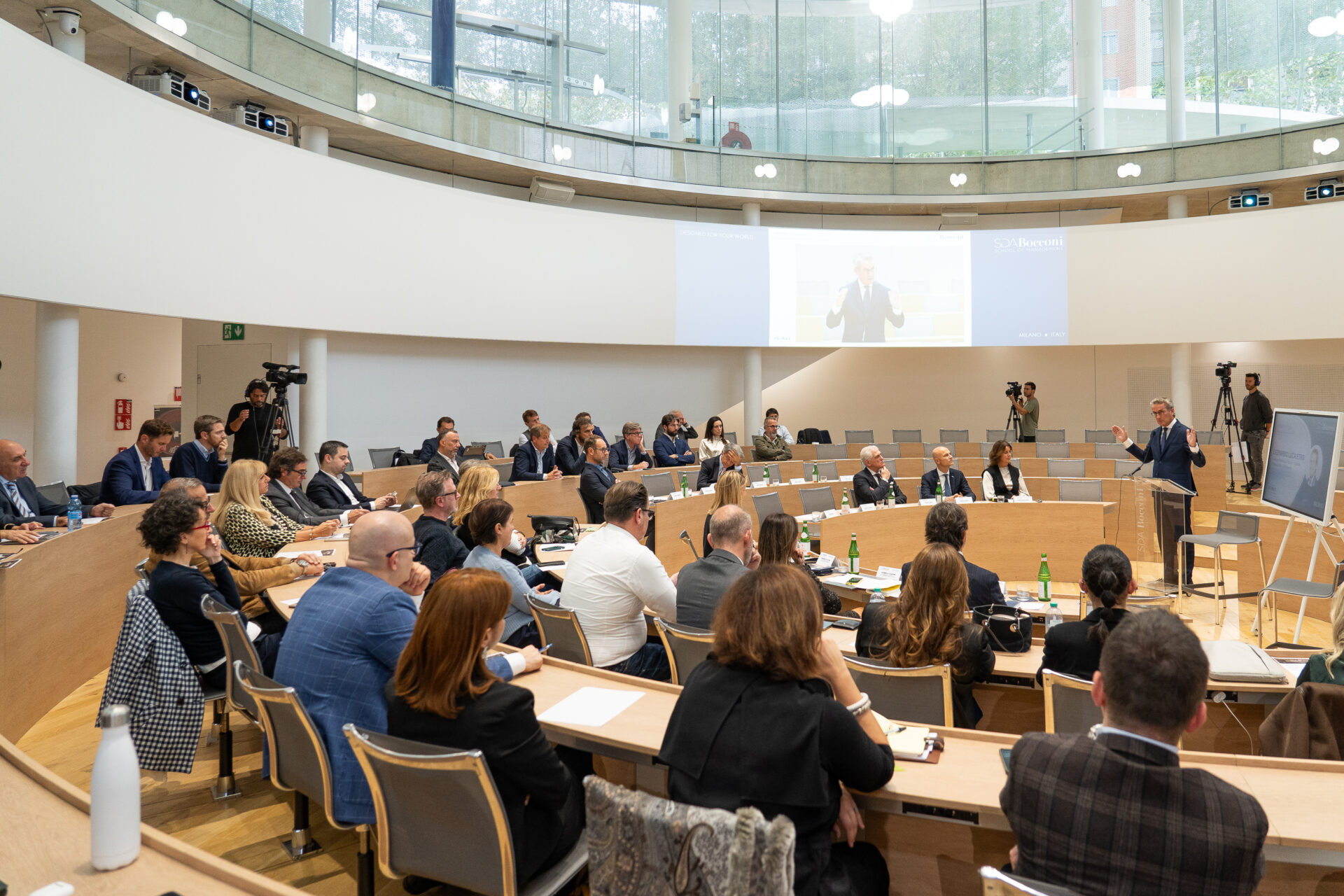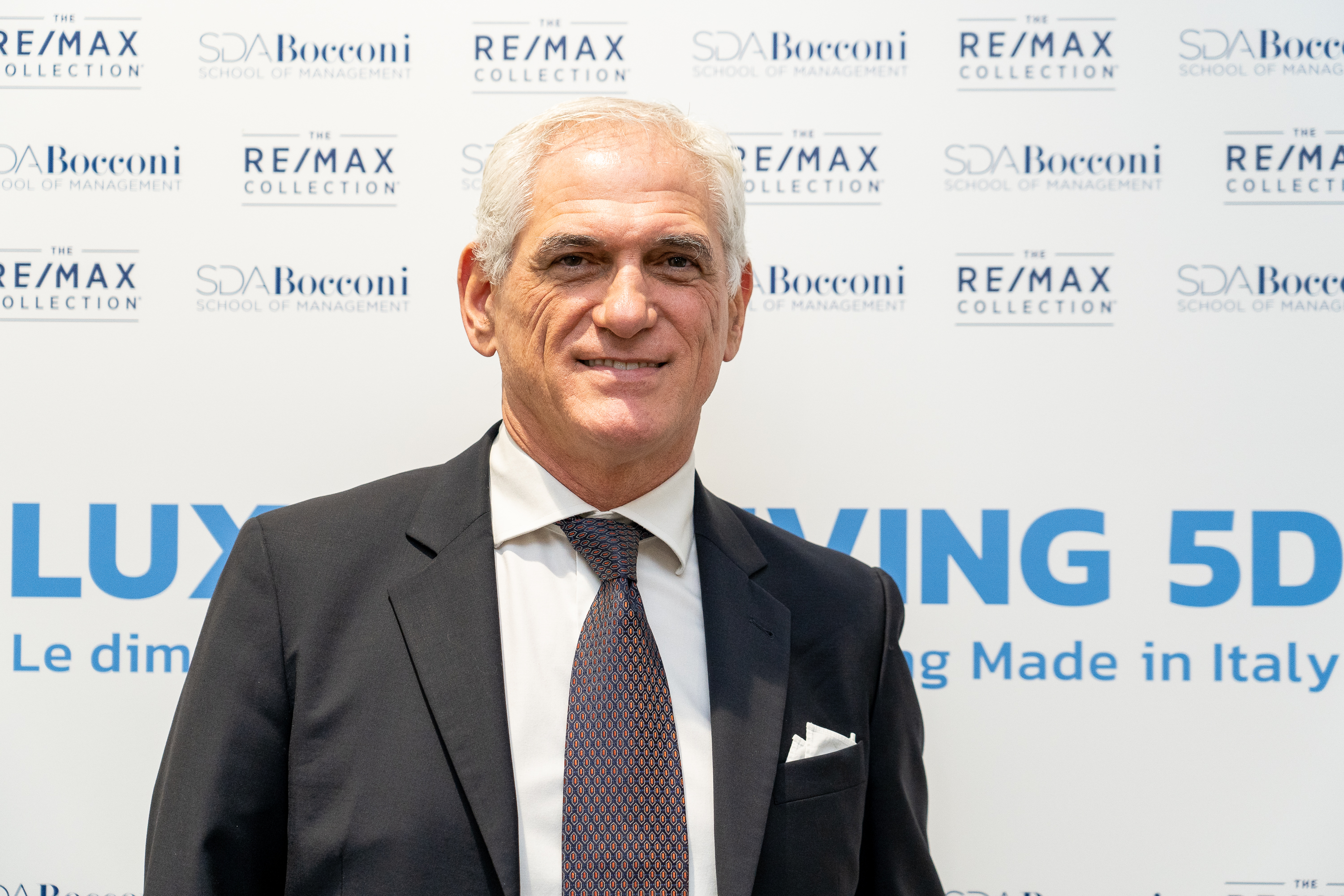- Interviews
- 11 Jan 2024
RE-Lux-Tech: the role of technology in luxury and relationships with living.

RE-Lux-Tech: the role of technology in luxury and relationships with living.
Excerpt from the Luxury Living 5D event held on October 26 at Auditorium Ferrero of SDA Bocconi, Milan and promoted by RE/MAX Group in collaboration with SDA Bocconi School of Management.
Protagonists of the fourth dimension dedicated to the role of technology in luxury are Paola Cillo Associate Dean for Resarch – Claudio Demattè Research in conversation with Raoul Ravara, Managing Director – Asset Management HINES and with final commentary by Vittorio Savoia, Owner of The RE/MAX Collection Crystal in Rome.

His experience began in traditional construction. It then veered into specialization related to Real Estate sales. Franchised real estate brands such as Gabetti, Tecnocasa, Tempocasa, Engel & Volkers, and now Re/Max, characterized the formation of his experience. However, his professional background has certainly been enriched by an important path in Turin-based Real Estate Funds. He assists clients operating in the widest range of activities related to real estate. From pure construction to buying and selling at public and private auctions. From outright purchase from the banking world, to real estate short trading.
From traditional brokerage to classic leasing. Not excluding the transformation and development of traditional and specialty properties. “Luxury should not be interpreted as a status issue but as a form of expression of identity and belonging to a community of people,” said Cillo. Technology helps dentify new tools such as Internet of Things and digital identity that enable new perspectives on product storytelling and perception within a new frontier of storytelling. In the most advanced technologies, a system of interconnected devices makes it possible to assign unique identifiers (UIDs) to each customer that can transfer the most meaningful data that can describe desires and experiences, laying the basis for new experiential buying propositions. In fact, technological innovation, particularly in the post-COVID era, has accelerated trends and solutions at all stages of the customer journey and in all phases of the “customer lifecycle.”
In real estate, and in luxury living in particular, technology supports both service delivery-particularly for the implementation of the new real estate as service paradigm that in living takes the form of Build-to-Rent on multicompartment and multitenant assets-and in terms of product lifecycle, think for example of:
1) design in BIM.
2) CRM 3.0 management with customer information gathering.
3) possibility of overcoming the trade off between confidentiality of search/supply of luxury assets guaranteed in the market and effectiveness of performance by leveraging the network (technology allows for interconnection while maintaining privacy).
4) to the best buying experience thanks, for example, to the realization of high-performance videos that are able to make the experience of the asset at a distance, even anticipating it in cases of urban regeneration or in the development of new assets, to the “configuration” of the asset with choice of furnishings and customizations in terms of space planning online ensuring the best offer built on the customization made directly by the client.
5) certification of documentation by ensuring rigorous due diligence all the way to online purchasing, delegating one of the least pleasant phases of the buying process to technology.

 English
English Italiano
Italiano